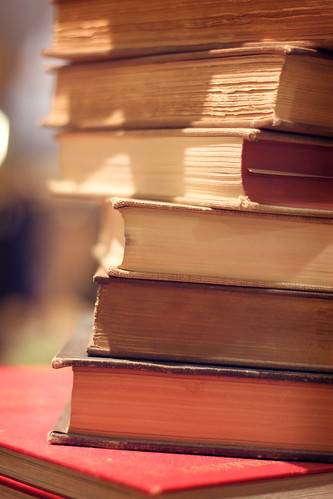It's just one little letter, but it gets confused all the time. Change the a in than, and you've created then -- and then, you've got grammar problems. Knowing the difference between then and than is essential to good writing, because the two are as different as night and day. The trouble is, you can't change day to night with a single letter...but a wrong then can totally destroy all your good writing work.
Then
Most of the time, then is an adverb or a noun. It means at that time or even next, which are two pretty unrelated sentiments. This is why the word is confusing. I might say Well, that was back then and clearly I'm referring to some past time, and things have now changed. But it's also correct if I say We dated for awhile, then I learned he was a jerk, which would still have the same meaning if I type next instead of then -- in this case, it's used to refer to the future past (truly the worst tense in the whole of the written word).
But sometimes, then is an adjective, a descriptive word. When used in this fashion, then means being or existing. Written as an adjective, then is commonly paired with a dash. Here's an example: He started a business back in the 90s. Bill Clinton, the then-president, had what he considered a favorable tax policy. See what I mean? I'm using then to describe something about Clinton, so it's an adjective. Another example: Davy, her then-boyfriend, glared angrily at Steve, a known flirt.
Then is also used idiomatically. You can use it to mean on the other hand. Example: Then again, I'd just as soon have pizza for dinner instead of tacos. When used with the word there, it's a common expression: She pulled out a spoon, ready to start tasting her choices then and there. It just means right in that moment.
When then first appeared around 900 AD, it was spelled thanne. Maybe that's where all this then/than confusion comes from in the first place.
Than
Than, on the other hand, is a conjunction. This just means it's a linking word, and most commonly used to link adjectives and adverbs to each other. Than means otherwise; it's used to introduce an alternative. I'd rather have pizza than tacos. This one is prettier than the other one. I like that carpeting better than Jody's.
Like then, than first appeared in the English language around 900 AD as a variant of then...but today, the two are distinctly separate.
Telling Them Apart
Until the 18th century, then and than were actually interchangeable. That's no longer the case. If you put a then where a than ought to be, you're going to confuse readers and look like you don't know what you're doing. How are you supposed to tell them apart? There are a few ways to go about it.
Remember that then essentially means next. If I want to write about grammar, then I better research it first! You're describing something that happens next. Then is conditional; it can't really stand alone. If I type Then I'm going to walk without a proper frame of reference, you have no idea what's going on. Then needs something else to happen first, then it can introduce option 2 or the next event.
Than, on the other hand, appears only when something is being compared to something else. I liked this movie better than Avatar. Two things are being mentioned and contrasted or compared, that's the function of than.
The two words are spelled almost exactly alike, and when spoken aloud they sound quite similar. Once, they were essentially the same word. It's very, very easy to confuse then and than. The easiest way to double-check yourself is to use a synonym. Then is a synonym for therefore. Replace all your thens with therefores. If sentences stop making sense, see if they look any better with the word than instead.
Than
Than, on the other hand, is a conjunction. This just means it's a linking word, and most commonly used to link adjectives and adverbs to each other. Than means otherwise; it's used to introduce an alternative. I'd rather have pizza than tacos. This one is prettier than the other one. I like that carpeting better than Jody's.
Like then, than first appeared in the English language around 900 AD as a variant of then...but today, the two are distinctly separate.
Telling Them Apart
Until the 18th century, then and than were actually interchangeable. That's no longer the case. If you put a then where a than ought to be, you're going to confuse readers and look like you don't know what you're doing. How are you supposed to tell them apart? There are a few ways to go about it.
Remember that then essentially means next. If I want to write about grammar, then I better research it first! You're describing something that happens next. Then is conditional; it can't really stand alone. If I type Then I'm going to walk without a proper frame of reference, you have no idea what's going on. Then needs something else to happen first, then it can introduce option 2 or the next event.
Than, on the other hand, appears only when something is being compared to something else. I liked this movie better than Avatar. Two things are being mentioned and contrasted or compared, that's the function of than.
The two words are spelled almost exactly alike, and when spoken aloud they sound quite similar. Once, they were essentially the same word. It's very, very easy to confuse then and than. The easiest way to double-check yourself is to use a synonym. Then is a synonym for therefore. Replace all your thens with therefores. If sentences stop making sense, see if they look any better with the word than instead.

























